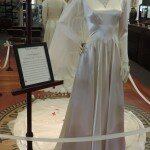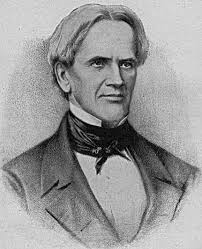Sunday March 19th join us for a presentation of photos and videos that will take you back to a simpler time in our little town of Franklin. Joe Landry, class of ’67 will host this flash back and discussion of fond memories.
Category Archives: Uncategorized
Historian Alan Earls presentation 3/11
The Most Famous Irishman Who Never Was
Local historian Alan Earls will deliver a unique two part program on Saturday March 11th at the Franklin Historical Museum. Earls will first discuss the arrival of the Irish in Franklin in the 19th Century – why they came, how they made Franklin home and the challenges they faced. He will then introduce Mr. Dooley – an “Irishman” who became the public face of the Irish in America. It was Dooley and his popularity as a political commentator that had much to do with the growing acceptance and appreciation of the Irish across the United States.
Wedding Gowns
 This year we have 11 beautiful dresses on display which span from 1890 to 1960. New to this year’s display is Palma DeBaggis Johnson’s Wedding Dress. Palma was a much loved teacher who was known best for working with her Kennedy School class on a project that ended in the Ladybug being named Massachusetts stage bug. We have 4 sets of dresses that are Mother and Daughter and one dress worn by both Mother and Daughter. The exhibit committee has been working hard ironing gowns, dressing mannequins and telling the stories of the dresses. We hope to see you soon.
This year we have 11 beautiful dresses on display which span from 1890 to 1960. New to this year’s display is Palma DeBaggis Johnson’s Wedding Dress. Palma was a much loved teacher who was known best for working with her Kennedy School class on a project that ended in the Ladybug being named Massachusetts stage bug. We have 4 sets of dresses that are Mother and Daughter and one dress worn by both Mother and Daughter. The exhibit committee has been working hard ironing gowns, dressing mannequins and telling the stories of the dresses. We hope to see you soon.
Horace Mann Day ~ Sunday May 3rd
 The museum will celebrate Franklin’s most famous son, Horace Mann with a special presentation by speaker and author Peter Golden. Peter will present a talk on HORACE MANN AND HIS WORLD. The museum opens at 1:00pm and the presentation will start at 1:30. A welcome by Historic Commission Chairperson Debbie Pellegri will start the afternoon, with welcome and comments by Commission Member Mary Olsson, State Rep Jeff Roy and finally Peter Golden’s presentation. An exhibit on the timeline and details of Mann’s life will be on permanent display at the museum. Cake and coffee will be served. Historians, teachers, students, residents and all who are interested in the influence of Horace Mann on our world today are welcome to attend this informative presentation.
The museum will celebrate Franklin’s most famous son, Horace Mann with a special presentation by speaker and author Peter Golden. Peter will present a talk on HORACE MANN AND HIS WORLD. The museum opens at 1:00pm and the presentation will start at 1:30. A welcome by Historic Commission Chairperson Debbie Pellegri will start the afternoon, with welcome and comments by Commission Member Mary Olsson, State Rep Jeff Roy and finally Peter Golden’s presentation. An exhibit on the timeline and details of Mann’s life will be on permanent display at the museum. Cake and coffee will be served. Historians, teachers, students, residents and all who are interested in the influence of Horace Mann on our world today are welcome to attend this informative presentation.
Ben Franklin’s Birthday!
Printer, author, scientist, musician, inventor, diplomat and revolutionary.
On Sunday, January 18th the museum will be celebrating the birthday of our town’s namesake, Benjamin Franklin, born January 17, 1706.
The town of Franklin was originally to be named Exeter. As our forefathers made their way to Dedham to establish the charter of incorporation, word of Ben’s success in establishing the French alliance with Louis XVI had made it’s way to the Colonies. And, as noted in the History of Franklin by Mortimer Blake, a last minute decision was made, ‘… and it was with graceful tribute to the successful diplomatist, Franklin, that the town, just at that date applying for incorporation, should bear his name.’
As a special treat, Vera Meyer will return to the museum to perform on the glass harmonica, a unique instrument invented by Benjamin Franklin.
About the instrument:
The glass harmonica was invented by Benjamin Franklin in 1761. The instrument enjoyed wide popularity in Europe (where Franklin was living at the time) for about 40 years until it was banned by German police around 1830. It was feared by people and thought to cause insanity, nervous disorders, convulsions in dogs and cats, marital disputes, and even wake people from the dead. It is possible that the lead in the glasses used at the time caused a neurological problem for people. However, maybe it was the haunting tones of the instrument, or maybe it was because Anton Mesmer used the instrument to hypnotize his patients. We have discovered about 300 compositions originally written for glass harmonica, including works by Mozart and Beethoven.
About the musician:
Vera Meyer discovered glass music in 1983 when she happened upon street musician Jim Turner playing his 70 musical wine glasses on the street in Harvard Square in Cambridge, MA. She was so captivated by the sound of the instrument that she immediately worked to acquire her own glass instrument. She started by building a similar set of tuned wine glasses, but very soon thereafter she heard about Gerhard Finkenbeiner, a master glassblower who built glass harmonicas based on the Franklin design. Vera contacted Gerhard immediately to procure one of the first such instruments he ever made. She has been playing the glass harmonica ever since and her performances include everything from informal functions to formal concert engagements. Vera is co-founder of Glass Music International, an
organization with the goal to promote a renaissance of glass music around the world, after 150 years of obscurity for the instrument.Vera wishes to dedicate all future concerts to the memory of Gerhard, her friend and mentor.
Stop by the museum on Sunday the 18th, between 1:00 and 4:00pm, to enjoy a piece of cake, hear the unique sounds of the glass harmonica, and celebrate Ben!
Mary Wiggin’s Diary Transcript
Susan Elliot has volunteered her time to transcribe the diaries of Mary Wiggin’s which span many years. Here is a brief excerpt from January 1925. You can read more here.
Thursday, Jan. 1, 1925
Sunny and no snow, good dry walking. No mail to-day. I cooked onions and baked potats. I looked over a huge pile of papers in Library to find oil shales for Josh but didn’t get what he wanted. The table is light —of its load.
Friday, Jan. 2, 1925
Raw, sunless day. I attended to Tower, egg-man, Litchfield grocers, Greek’s boy. Proe had cup cakes and bran muffins. I sent my Trustee book $50, and F.F. book $150 by Elmer Fales to have verified. Jose went to Boston to have her spectacles examined. Had a good letter from Alice. She seems to enjoy driving in sleigh to Center. Poor Mr. Skinner in bed. It is snowing at night and I hope Sophie and Alice will get home all right from N.H. and Chicago on their railroad journeys
Welcome to the Franklin Historical Museum Website
Please pardon our appearance while we rebuild and launch our new website. Check back often as there will be updates frequently!

